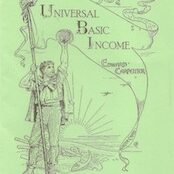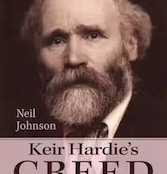BARRY WINTER reports from two meetings in Leeds addressed by the Labour peer and policy advisor Maurice Glasman earlier this month.
Maurice Glasman, who is centrally involved in developing Labour’s new programme, began by addressing the question of where the Labour Party is today.
New Labour has left us with a difficult inheritance, he argued. There has been a massive rupture of trust between traditional working-class voters and the party on a range of issues. People don’t believe that we are on their side, they don’t feel that we’re addressing the issues that concern them, and the party in London seems distant. As a result, their votes are not returning to us.
From his work with community organisations across the country, he argues that what people really care about is keeping their relationships together: it’s about family, love, loyalty and the chance to lead fulfilling lives. People want help in sustaining these relationships. They care about where they live and the degradation of these areas.
They care about work and wages; they are fed up about being bossed around at work and having no power in the workplace. Their wages are stagnant.
They are disgusted about personal debt and many find themselves in a bad place. Family debt has doubled in recent years, with pay-day loans and the like. The banks lend to the loan companies at interest rates of 7 per cent and, in turn, these companies charge their desperate customers over 5,000 per cent interest.
The problem is that the Labour Party does not talk about these things, Glasman argued. Instead, it deals in generalities, like equality and diversity, which don’t relate to most people. That’s why we need to articulate a new position based on how to build the common good, including with people who are newcomers.
People’s powerlessness
Labour’s policy review is therefore looking at how to deal with people’s sense of powerlessness and how we might redistribute power through such institutions as city parliaments. This also relates to the way the economy works. We have a massive concentration of capital in the UK together with the most centralised state. Germany has regions and over 3,000 local banks (compared with six in the UK).
Local banking dissolved in the boom years. Northern Rock’s history exemplifies what happened. It began in the 1850s as a northern building society, but was demutualised in 1997, becoming a huge operation based in London. With the crash, £1.6 trillion was pumped into the bank from people’s pockets. What did Gordon Brown ask for in return? Is it any wonder that people don’t trust us?
People are now left at the mercy of loan companies like Wonga where a £500 loan can turn into £12,000 debts in a couple of months. Not only are people hit by the national deficit but they are struggling with their own debts. It is worth remembering that the majority of those who go to companies like Wonga are not on benefits but are low-paid workers.
We need to set up local banks, argued Glasman, what might be called ‘Banks of England’. These could help end the debt cycles and the home repossessions that accompany them. The Archbishop of Canterbury has offered to provide space for credit unions in thousands of churches.
Labour also needs to establish vocational institutions. In Germany, you get apprenticeships for hairdressing and shop-work, unlike in the UK. We need to restore the sense of vocation if we are going to renew society and help young people. We have to find ways to revive the dignity of labour.
A convincing narrative
New Labour’s promise that things can only get better led to great disappointment. We now need a serious conversation with people about what’s possible. We have to provide a convincing narrative. Without that it is not possible to make progress and there can be no narrative of learning.
In overcoming the breakdown of trust between Labour and its supporters, we also have to re-examine the party organisation. Our membership has been hollowed out. We have often adopted a very instrumentalist approach to members and voters. Delivery of election leaflets has taken precedence. Instead we have to move from a task-based culture to a relational one. It has to empower and engage people.
The role of politics and political activity should be to reinvigorate local life. We have to value the power of association so that people can talk about what concerns them, what causes them pain.
Jon Cruddas is also focussing on how we build a relational state, so that power is shared and not simply top-down or totally diffused. For example, in the health service, this would mean creating a balance of interests between patients, health service staff and the state or its representative institution. There needs to be similar balance in education. All this involves a redistribution of assets to give people the power to make decisions.
Put simply, Glasman’s message is that the road ahead is difficult. The best asset we have is each other and we have to work together to build the good society.
—-
This report is based on two meetings that Maurice Glasman addressed in Leeds in July, one to a small group of academics, the other at the Otley Labour Party rooms organised by the local party and the Fabian Society.
See also: ‘A Conversation with Maurice Glasman’, a two-part interview with Glasman from autumn 2011, plus two articles by Glasman on related themes, ‘Debt and Democracy’ and ‘A Tale of Two Cities’.



1 November 2013
[…] https://www.independentlabour.org.uk/main/2013/07/15/%E2%80%98the-best-asset-we-have-is-each-other%E2… This entry was posted in Uncategorized. Bookmark the permalink. ← Revolutions & Burke […]
15 July 2013
Barry tells us that Maurice Glasman is centrally involved in developing Labour’s new programme. When exactly was that decided? Who voted for him?
However, I must admit that in the collection of short essays One Nation Labour – debating the future from LabourList, Glasman made the most telling contribution to the eBook in just two sentences: “[Let’s] talk about land reform and community land trusts as a way of including people in the property-owning democracy by transferring the freehold asset to communities. In housing that means that the price is halved and there can be a genuine and affordable house building programme.”
Oh, I should perhaps mention the only essay worth reading in the eBook. It is the political economy critique contained in ‘Rebuilding the regions’ by Karel Williams and Sukhdev Johal. But you must strike out the meaningless phrase “new policy imaginary”, and the concluding paragraph which promotes English regional government.
15 July 2013
It was good to read a summary of this speech, but it doesn’t say very much in concrete terms, even though it critcises those on the left who talk in ‘generalities’ like ‘equality and diversity’. Glasman seems to come back to one initiative again and again – regional banks. He mentions loan sharks (not a problem for the vast majority of people, so by his own criteria, they won’t relate to the idea), and he is promoting city parliaments, which excites me just about as much as regional devolution does, and he doesn’t address either work or wages.
Hasn’t he heard of NVQs in hairdressing and retail btw?
I suppose we could engage by suggesting that Labour opposes sale of shares in banks and calls for social ownership of finance. That engages with his concern about the banking sector and its lack of interest in society. He sounds like he’s running out of steam.